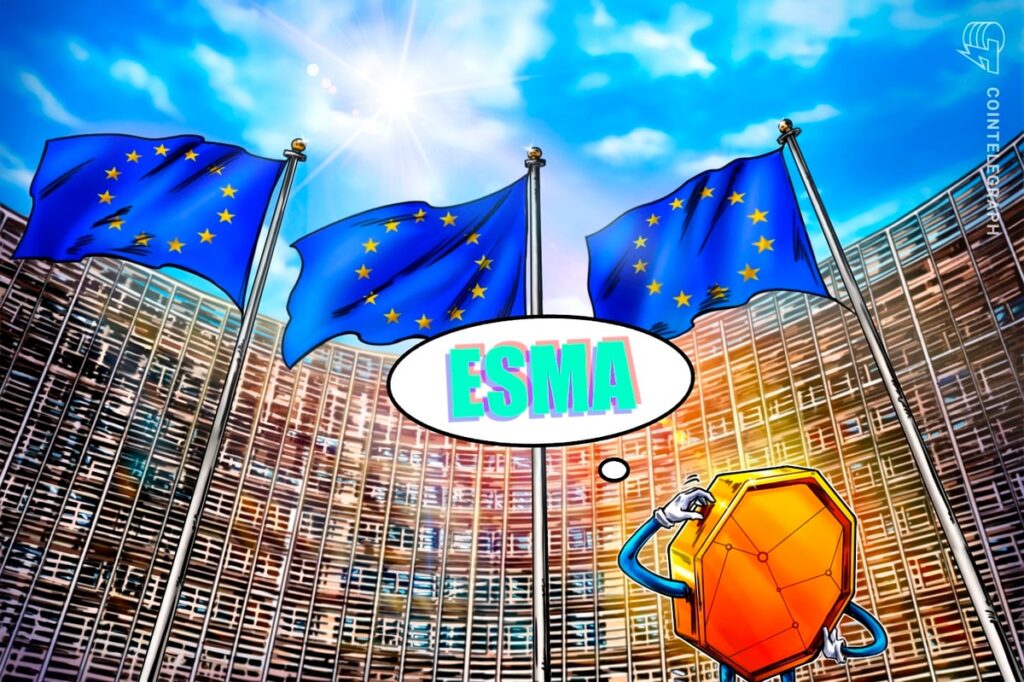The European Union’s markets regulator is preparing to expand its authority to cover cryptocurrency exchanges and other operators, a move officials say would better align oversight with the bloc’s newly implemented Markets in Crypto-Assets (MiCA) framework.
Verena Ross, chair of the European Securities and Markets Authority (ESMA), confirmed in an interview with the Financial Times that the European Commission is developing plans to shift supervision of several financial sectors, including crypto, from national regulators to ESMA.
Ross said the reform would help build “a more integrated and globally competitive” EU financial landscape. The proposal aims to address “continued fragmentation in markets” and move closer to a unified capital market across Europe, she said.
Under the current MiCA regime, licences for crypto-asset service providers are issued by national authorities rather than a central EU body.
Smaller member states have so far led the rollout. Lithuania granted its first license to discount brokerage Robinhood Europe earlier this year, while Malta has authorized major exchanges, including OKX and Crypto.com. In Luxembourg, Bitstamp and Coinbase have also secured MiCA licences.
Ross argued that delegating supervision to individual countries has created inefficiencies, forcing each national authority to build its own expertise and oversight systems. ESMA has also raised concerns about inconsistent licensing standards, including a July review that criticized elements of Malta’s authorization process.
Established in 2011 in the wake of the 2008 global financial crisis, ESMA was created as part of the European System of Financial Supervision to harmonize financial regulation across the bloc.
MiCA, which came into force beginning in June 2024, is the EU’s landmark crypto law designed to create a unified framework for digital asset issuers and service providers across all 27 member states.
Related: Malta regulator fines OKX crypto exchange $1.2M for past AML breaches
MiCA faces pressure over cross-border ‘passporting’
Efforts by ESMA to streamline and unify crypto regulation are colliding with growing tensions among EU member states over the so-called “passporting” rule — a key feature of the MiCA framework that allows companies licensed in one country to operate across the entire bloc without needing separate approvals.
In a recent Cointelegraph podcast, Jerome Castille, head of compliance at CoinShares, said the biggest challenge facing MiCA is ensuring consistent implementation across all member states.
Marina Markezic, executive director of the European Crypto Initiative, a policy group advocating for pro-industry regulation, said the problem stems from having “27 different national competent authorities supervising the same regulation.” She argued that this fragmented approach risks undermining MiCA’s core objective of harmonization.
The passporting system has sparked controversy among some of the bloc’s largest markets. France, for example, is reportedly considering restrictions on crypto companies that are licensed elsewhere in the EU but wish to operate within its borders — a move critics say could breach single-market principles.
“From what we’ve seen, blocking passporting under MiCA is technically possible, though it comes with significant legal complexity,” Markezic said.
Magazine: How crypto laws are changing across the world in 2025

